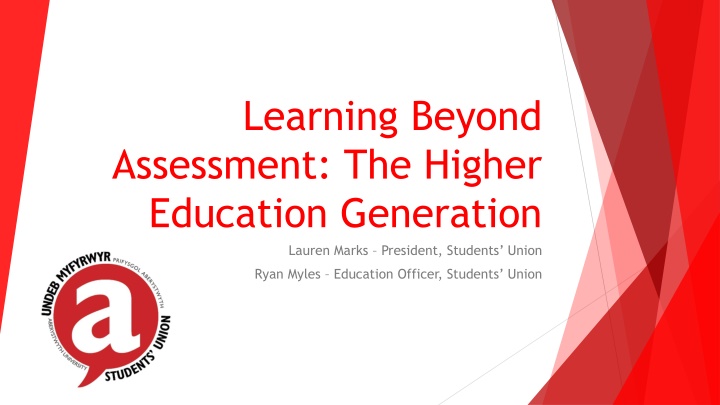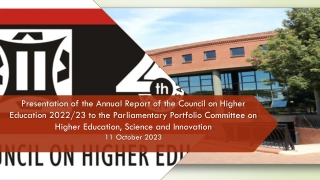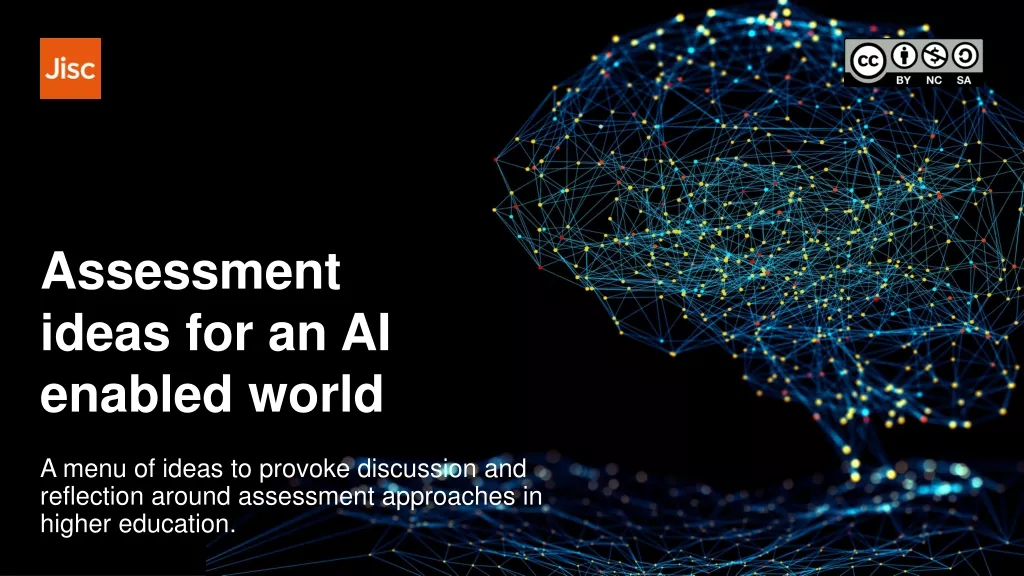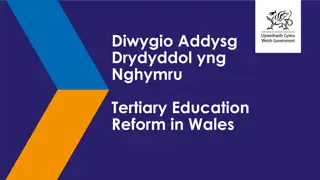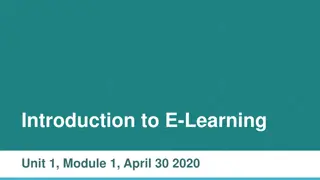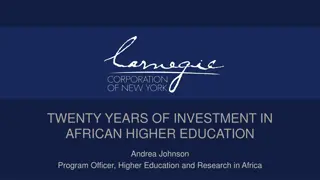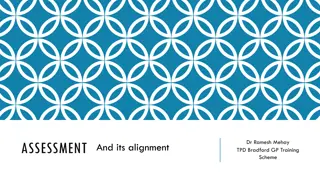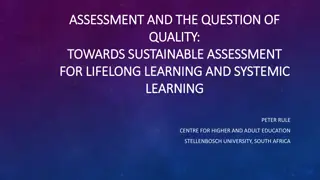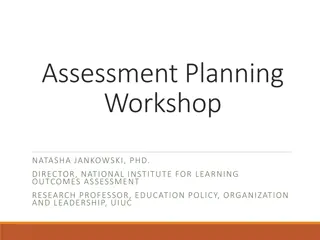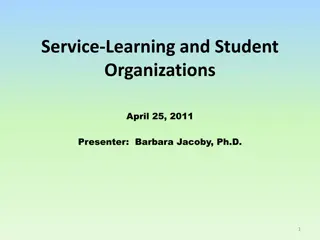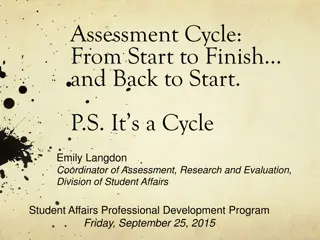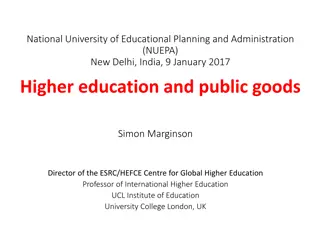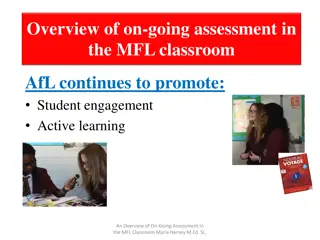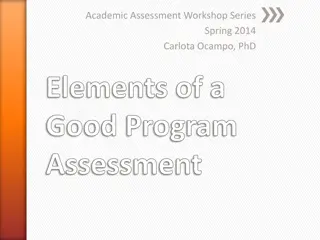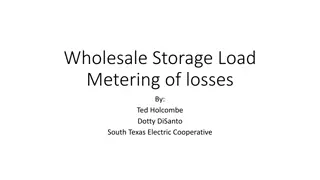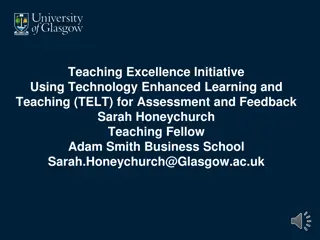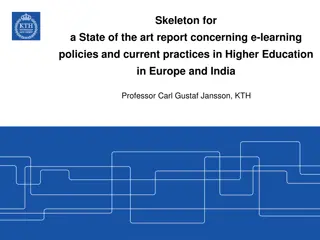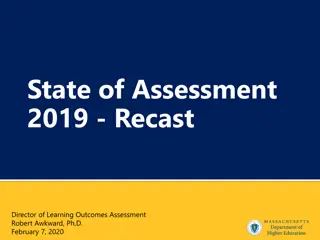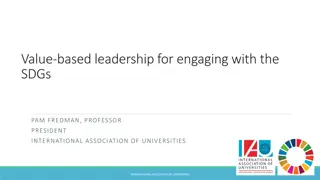Learning Beyond Assessment: The Higher Education Generation
New students in higher education seek more than just passing assessments. They value student experience, skills development, and access to diverse teaching methods. Embracing students as partners is key to enhancing learning outcomes and meeting diverse learning needs.
Download Presentation

Please find below an Image/Link to download the presentation.
The content on the website is provided AS IS for your information and personal use only. It may not be sold, licensed, or shared on other websites without obtaining consent from the author.If you encounter any issues during the download, it is possible that the publisher has removed the file from their server.
You are allowed to download the files provided on this website for personal or commercial use, subject to the condition that they are used lawfully. All files are the property of their respective owners.
The content on the website is provided AS IS for your information and personal use only. It may not be sold, licensed, or shared on other websites without obtaining consent from the author.
E N D
Presentation Transcript
Learning Beyond Assessment: The Higher Education Generation Lauren Marks President, Students Union Ryan Myles Education Officer, Students Union
What is the Higher Education Generation? New students are entering higher education having grown up in digitally dominated environments NUS, 2016 A greater diversity of students are now entering higher education Fee increases and a turbulent higher education environment
Students as Partners We believe that students should be considered as partners in their education, and not as consumers in a higher education environment which is constantly and increasingly subject to marketisation Students are more willing to raise their voices about the standard of teaching and learning in their institutions Responding to and working WITH the student voice is key, we believe, to achieving learning beyond assessment This is a concept that we d like you to keep in mind throughout this presentation
Learning is not JUST about passing the assessment Students don t choose their universities purely on the course Students increasingly look for an overall student experience Students are more aware that they re not just here to pass exams, although important, they are looking for a lot more from their university experience As well as a degree, students are looking to gain skills for use in the graduate world, as well as improving their work ethic, practical and interpersonal skills etc All of this and more means that our curricula need to reflect the diverse needs of students, and not rely on traditional teaching and assessment methods
Widening Access and Participation Higher Education is becoming more accessible to students with a diverse range of learning needs Since the declared cuts to DSA in 2015, universities will have to pay for non- medical support staff, including note-takers, and readers, and funding for computer equipment and specialist accommodation will be reduced from September 2016 A diverse range of learning needs calls for a diverse range of teaching and assessment methods to give all students the chance to perform at their best
Alternatives to the Analogue Teaching and Assessment Methods Lectures, essays and exams have become the norm at university few transferable skills are gained in this way This can be daunting for students in the first year as they will have come from a much more inclusive and small learning environment, to being in huge lecture theatres full of their peers in a lecture style Traditional methods of teaching regularly fail to support students to transfer their learning to activities outside the classroom Biggs & Tang, 2011 Metacognitive Control, Relevant learner activity, Formative feedback, Student motivation, Interconnected knowledge base, Social learning Formative assessment a change to practice the skills you need before you are critiqued for something you ve never done before We need to start questioning WHY our teaching and assessments are the way they are, and how often, and whether we can offer our students the same end product in a different style
Liberating the Curriculum I believe that we should begin to work towards Liberating the Curriculum Not just liberation groups Includes curriculum content and design, environment, delivery, environment, assessment Why?
Well 42% of Black students say their curriculum does not reflect issues of diversity, equality and discrimination Disabled people consistently report being less satisfied with their education than non- disabled people (NSS) 1 in 10 trans students never feel comfortable to speak up in class There is currently a 16.1% gap between the numbers of 2:1 or higher degrees awarded to BME students More non-disabled people achieve a first/ 2:1 than disabled qualifiers
Technology Enhanced Learning We re really pleased that Aberystwyth shows so many examples of good practice in this area, as we have seen from this conference There is no right or wrong way to do this The current and future generations of students come from a technology filled environment and everything is accessible to them in this way Increases student engagement and ease of access to content Technology is constantly evolving and so should our course design and delivery
Some Context Students have an increasing range of needs and they are more aware of their needs than ever The most common measure of post-university success is the DLHE (Most recent data was released two days ago!) Currently a consultation on the DLHE There are a few different new measures proposed, some good for students and Aberystwyth in particular and some less good Must be prepared for any of these measures though as we imagine there will be some political manoeuvring from BIS TEF (Sorry)
Culture Change We need to start thinking about employability and how we can deliver best for our students Take collective ownership of employability for students Move away from the traditional idea of a careers service being the sole provider of this provision and towards an employability driven curriculum Employability and academic teaching are not mutually exclusive
What does this mean for our careers service? Expanding their remit from offering careers advice and facilitating employment fairs to supporting academics in their quest to firmly place employability into the curriculum Also continuing with provision with the things students expect however, such as job interview advice, employment fairs and so on
What does this mean for academics? Working to place employability into the curriculum Taking ownership of employability When planning courses and modules think about how it will not only further a students academic life but how it will benefit them in post university life
Closing remarks We have given a broad overview of some key themes and ideas, we don t claim to have definitive solutions but we hope that you can take away the ideas we have presented today.
Questions? Lauren: Union.President@aber.ac.uk Ryan: Union.Education@aber.ac.uk
